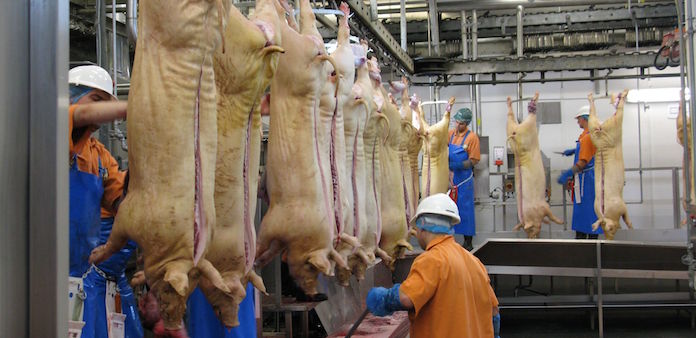The NFU has called for a range of schemes to be created to offer British farms flexible solutions for recruiting overseas workers for both permanent and seasonal work.
Options identified in the NFU’s latest Vision for the Future of Farming report on labour include a new Seasonal Agricultural Labour Scheme and a system of work permits.
This week, the leak of a document outlining Government plans for a tough stance on immigration after we leave the EU sent shockwaves through the industry.
In its document on possible future options to sustain a future labour supply for agriculture, the NFU recommends a potential new seasonal labour scheme open to workers from any countries with return arrangements in place with the UK. It could be administered by the Home Office and managed by licensed employers, with a restriction of nine months per placement, the report suggests.
Many permanent agricultural workers of varying skill levels are currently EU nationals, the NFU points out. The report highlights the importance of clarity, as a matter of priority, on the status of EU nationals living and working in the UK. And a future immigration system must recognise and provide for the ongoing need for non-UK workers both before and after Brexit, it says.
NFU President Meurig Raymond said: “It is crucial that the government makes sure that a future immigration system accommodates the labour requirements of the food and farming sectors.
“We urgently need a flexible, reliable and competent workforce to ensure British food and farming can flourish post-Brexit.
“Any schemes must reflect the needs of the UK farming industry – the bedrock of the UK’s food and drink industry worth £109 billion to the economy and providing jobs for 3.8 million people.”
NFU director of EU exit, Nick von Westenholz, the author of the reports, said: “The NFU believes there are a number of issues that should be tackled with immediacy.
“The government must provide clarity on the status EU nationals working in the UK as well as setting out its preferred approach to a new immigration system.
“We’ve also been urging the Home Office to instruct the Migration Advisory Committee (MAC) to undertake a full impact assessment of new immigration system options and their suitability for agriculture and horticulture. We’re pleased to see that the government has recently confirmed the MAC will be doing just that.”
Pig industry concern
The National Pig Association (NPA) has stressed the importance of retaining access to permanent ‘unskilled’ (defined as not educated to degree level) to the pig sector.
Responding to the leaked Government report, NPA senior policy advisor Ed Barker said: “The NPA is alarmed by the Home Office’s suggestion that migrant labour from the EU should be severely restricted, particularly those who fall under the ‘unskilled’ definition. Many workers in the pig sector fall into this category but are in fact highly skilled and make a significant contribution to the economy.
“We have made our position clear that migrant labour is integral to the businesses of NPA members; 58% of members indicated to the NPA’s migrant labour survey that they employed at least one migrant labourer, with 20% indicating they would struggle to survive without it.”




